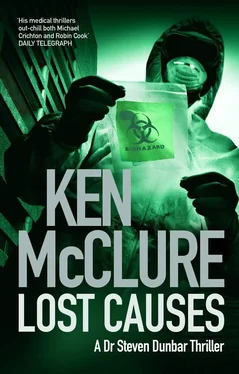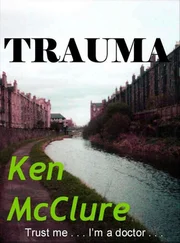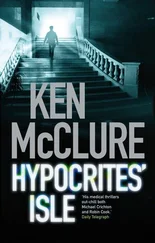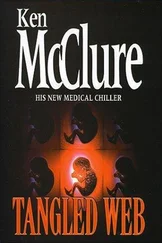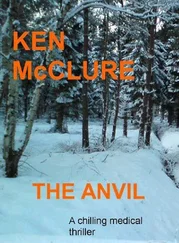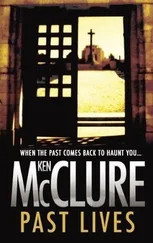Ken McClure - Lost causes
Здесь есть возможность читать онлайн «Ken McClure - Lost causes» весь текст электронной книги совершенно бесплатно (целиком полную версию без сокращений). В некоторых случаях можно слушать аудио, скачать через торрент в формате fb2 и присутствует краткое содержание. Жанр: Триллер, на английском языке. Описание произведения, (предисловие) а так же отзывы посетителей доступны на портале библиотеки ЛибКат.
- Название:Lost causes
- Автор:
- Жанр:
- Год:неизвестен
- ISBN:нет данных
- Рейтинг книги:4 / 5. Голосов: 1
-
Избранное:Добавить в избранное
- Отзывы:
-
Ваша оценка:
- 80
- 1
- 2
- 3
- 4
- 5
Lost causes: краткое содержание, описание и аннотация
Предлагаем к чтению аннотацию, описание, краткое содержание или предисловие (зависит от того, что написал сам автор книги «Lost causes»). Если вы не нашли необходимую информацию о книге — напишите в комментариях, мы постараемся отыскать её.
Lost causes — читать онлайн бесплатно полную книгу (весь текст) целиком
Ниже представлен текст книги, разбитый по страницам. Система сохранения места последней прочитанной страницы, позволяет с удобством читать онлайн бесплатно книгу «Lost causes», без необходимости каждый раз заново искать на чём Вы остановились. Поставьте закладку, и сможете в любой момент перейти на страницу, на которой закончили чтение.
Интервал:
Закладка:
‘Then I’d best take it,’ said Steven. ‘Perhaps you could inform College Hospital of our interest and get me permission to rifle through their cellars?’
‘Of course.’
‘And I’d like to go see Gordon Field some time. Where exactly is Leigh Open Prison?’
‘Yorkshire. Do you want me to approach the governor?’
‘Please. I plan to visit him some time in the next few days.’
Steven drove up to Leicester on Sunday and stayed overnight at Tally’s place. ‘What do you think the Lib Dems are going to do?’ Tally asked as she and Steven did the washing up after dinner. She got the expected grunt in response. ‘You don’t care, do you?’
‘Correct.’
‘Oh, Steven, I know you’ve had a lot of bad experiences with politicians, and I know you don’t like them, but all the same…’
‘You don’t know the half of it.’
‘Maybe not, but it won’t change unless you make it.’
‘Human nature doesn’t change, Tally. It’s the driving force behind everything, always has been. It’s circumstances that change.’
‘What does that mean?’
‘Today’s freedom fighters are tomorrow’s corrupt rulers. Yesterday’s idealists are today’s self-interested liars. It’s circumstances that change. The selfish gene will always out. People will grab the best for themselves.’
‘Gosh,’ said Tally, as if she’d just heard more than she bargained for. ‘What are you planning on grabbing, Steven?’
‘Your bottom… just as soon as I’m finished these dishes,’ said Steven, trying to keep a straight face.
‘Oh well,’ said Tally. ‘No use trying to fight human nature, I suppose…’
Steven had the usual trouble finding a parking place near a big city hospital. The situation was exacerbated by College Hospital’s being the oldest hospital in the city, built at a time when two legs were the most common form of transport. He was on his second circuit of the area when he saw reversing lights go on on a silver estate car up ahead, and paused to let the driver reverse out before slipping into the space, feeling the inevitable sense of achievement such success always brought.
‘I’m expected,’ he told the receptionist when she asked about an appointment. This prompted a phone call to ‘Mrs Rutherford’ before he was told that someone would be down shortly. He used the time to look around him, seeing what he expected: a mixture of Victorian architecture and bland, modern signing to departments not yet dreamt of when the place was built, tiled walls and corridors that stretched into the distance like the set of a nightmare and possessed that smell which all hospitals had.
He saw a young man in a suit pause at the desk to ask something, and the receptionist pointing in his direction.
‘Dr Dunbar? I’m Paul Drinkwater. The hospital manager asked me to give you his apologies — he has a meeting. I’m to give you all the assistance you need.’
Steven shook hands and said that all he required was access to the basement area.
‘I hope you’ve brought a boiler suit with you,’ said Drinkwater. ‘It’s pretty dirty down there.’
‘Didn’t think of that.’
‘Out through here.’ Drinkwater led the way out of the main building and across a cobbled courtyard to a small group of buildings signed as Works Department All Trades. Steven was introduced to the clerk of works, Dennis Drysdale, a short, stocky man, who Drinkwater told him would show him the way down. ‘If you need anything else, I’m on extension 117.’
Steven, who had thought that accessing the basement would simply mean opening a door and descending some stairs, followed Drysdale on another short safari across uneven cobbles to a pair of wooden double doors in the wall of the main building. Drysdale unlocked the padlock on them and said, ‘All yours.’
Steven peered down a narrow, sloping walkway which looked like the entrance to a mine, the stone walls lit at intervals with caged bulkhead lights.
‘Let me know when you’re finished and I’ll lock up again,’ said Drysdale. ‘Otherwise the winos and smackheads will move in.’
At least it wasn’t cold was Steven’s first thought as he walked down the slope to an intersection with corridors leading off in three directions. He opted for the middle one, calculating that it would take him under the centre of the hospital where, with luck, he would find more than long stretches of featureless corridor designed mainly for housing the supply pipes for the hospital’s services. Hot water and steam were uppermost in his mind as the temperature seemed to rise with every yard of progress. He had to stoop to avoid contact with the pipes but could still feel the heat on his face.
His spirits rose when he saw the corridor widen to accommodate a series of arched cellars, some with doors, some without. He could see piles of old furniture in one and what looked like antiquated anaesthetic equipment in another. Old steel bedheads and oil lamps made him feel as though he’d entered a museum. Long-skirted nurses in frilly caps and frock-coated surgeons flitted across his imagination.
He thought the last door might be locked when he tried it but it yielded to his shoulder and the slight echo the noise provoked suggested he was entering a much bigger space. It was in darkness, the bulkhead lights outside only illuminating the first few feet, so he ran his hand up the wall and found a bank of old-style metal light switches. To his surprise and relief, they worked.
The cellar was about the size of two tennis courts, although the openness of the space was broken by a regular series of brick pillars holding up the hospital above. Piles of wooden chairs and tables near the entrance impeded his progress, but once past them he found exactly what he’d hoped to find: rows of shelving reaching up to the ceiling and laden with cardboard file holders. A cursory opening of one of them revealed the patient notes of Mrs Matilda Gardner, who had been treated for gallstones in 1976.
The big question now in Steven’s mind was whether or not the notes had just been piled there haphazardly or whether they were in any kind of order. If the former, he was looking at a career, and one he had no wish to embark on. He stood in the eerie silence of the underground cavern, looking for any helpful signs on the shelving, his spirits falling as he failed to find any.
He walked towards the nearest row, already starting to calculate just how many people it would take to sift through the mountains of files and put them in chronological order. Then something caught his eye and he ran his fingers along the bottom edge of one of the shelves. To his joy, as the dust and grime cleared a little, he could just about make out something scrawled in black pen: two numbers and a dash: 75 -
With hope rekindled, Steven collected an armful of files and took them back to the cellar entrance where he dumped them on the floor while he fetched a table and a chair from the pile, and set them up as an impromptu office where he could sit and look through the files. It only took a few moments to establish that the ones he’d picked up were all from patients who’d been in the hospital in 1975. There was order among the feared chaos.
Steven put back the ’75 files and started hunting for more pen markings on the shelves. He felt his pulse-rate rise as he came across ‘91 — ’. Another armful of folders and a few minutes sitting at his reclaimed dusty desk and he had established that he was looking at files from patients treated in the hospital at the time of the Northern Health Scheme. He now had to decide whether to make arrangements for people to come here to sift through the records or to organise transport to take the files back to London.
It only took a few moments for him to plump for London. Sci-Med had a network of consultants, agencies and contacts they could call in at a moment’s notice. Jean Roberts would be able to come up with a team of people with the necessary skills to analyse medical records and report on their findings. They could be doing that while he went to pay Gordon Field a visit in prison. He had phone calls to make.
Читать дальшеИнтервал:
Закладка:
Похожие книги на «Lost causes»
Представляем Вашему вниманию похожие книги на «Lost causes» списком для выбора. Мы отобрали схожую по названию и смыслу литературу в надежде предоставить читателям больше вариантов отыскать новые, интересные, ещё непрочитанные произведения.
Обсуждение, отзывы о книге «Lost causes» и просто собственные мнения читателей. Оставьте ваши комментарии, напишите, что Вы думаете о произведении, его смысле или главных героях. Укажите что конкретно понравилось, а что нет, и почему Вы так считаете.
